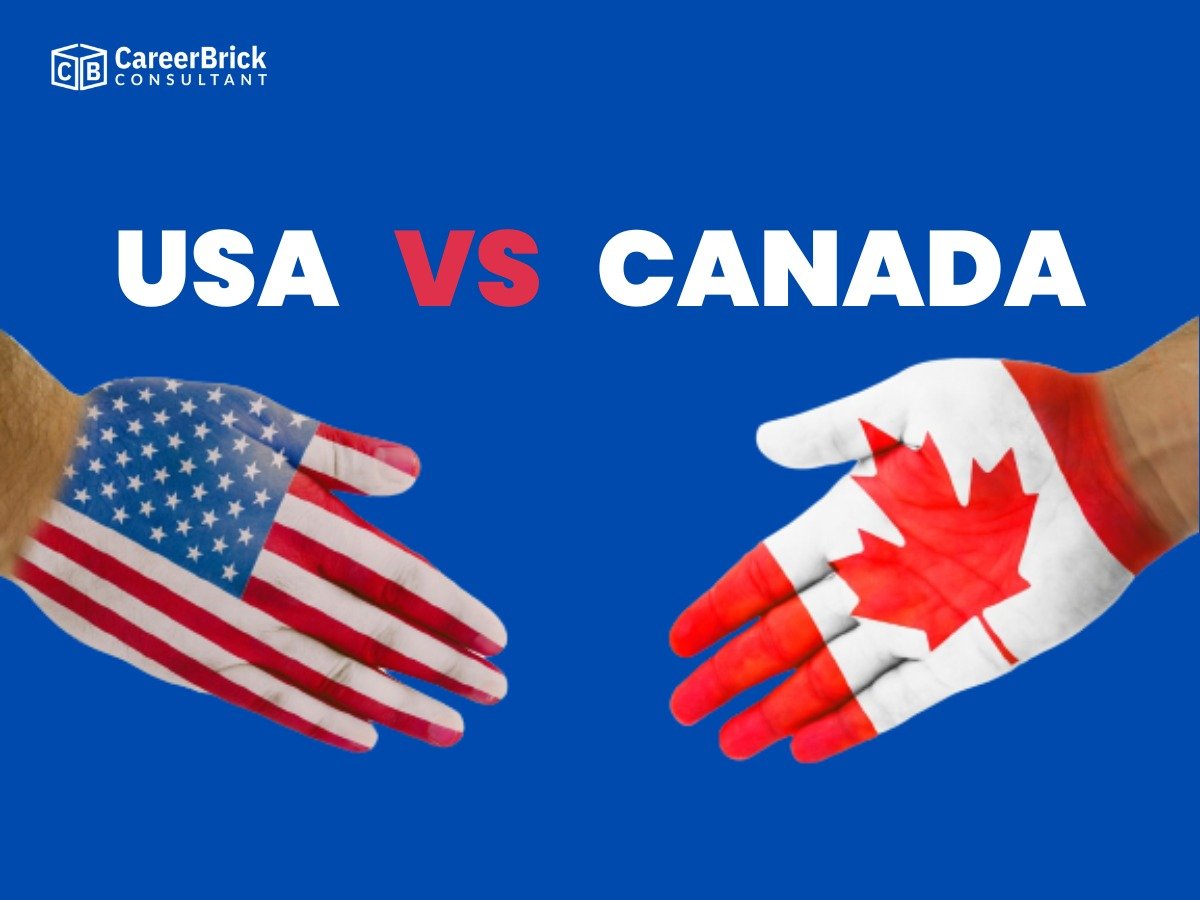When I was young, I believed that I was the focal point of attention, and the world spun solely around me, leading me to believe that any decision I made would inevitably be the correct one. But soon, I realized that it wasn’t the truth and that such a belief was but a fleeting mirage destined to be shattered by the profound realities that awaited me still. That enlightening realization pushed me on a never-ending quest for knowledge. I realized how valuable it is, understanding that it is a catalyst for personal growth. I discovered that information knows no boundaries; it can be acquired from any source. For students, studying abroad emerges as a remarkable avenue, offering a transformative experience that fosters growth and enlightenment.
When we step into a school, what captures our attention? Is it the splendor of its architecture or the brilliance of its faculty? Does a higher fee equate to a superior education? It is our job to decide — making sure the attraction of luxury or the illusion of price tags does not deceive us. Education, like the delicate threads of a spider's web, cannot be limited to monetary domains.
Are you an Indian student, or a student in particular, considering studying abroad? The world is your oyster, and two destinations that may be calling your name are the United States and Canada. Both countries offer unique opportunities for international students, but the question is, which one is the right fit for you?
Sorting out the correct one —
Canada and the USA have long been renowned for their trailblazing efforts in leading world-class higher education, setting the standard for excellence. These countries have reliably been at the forefront of innovation and progress, establishing strong educational systems that foster cutting-edge research, cultivate critical thinking skills, and empower students to reach their full potential. Supported by state-of-the-art facilities, these countries stand at the forefront, drawing in bright minds from all corners of the world. United by a shared commitment to nurturing intellectual curiosity, these nations foster an environment where groundbreaking ideas flourish, and intellectual breakthroughs become the norm. With an unwavering focus on shaping the future leaders of tomorrow, Canada and the USA ignite a passion for knowledge that reverberates across borders, transcending boundaries and propelling us toward a brighter, more enlightened future.
While both countries provide the best education, it depends on person to person which country would better suit them according to their needs. The cultures, perspectives, and ideas are different in both countries. You will find professors from diverse backgrounds in both countries, fueling you with the best knowledge in your sector of interest. If we talk about the quality of education, both countries have excellent universities and programs. Canada has a reputation for being particularly strong in fields like technology, engineering, and natural sciences. On the other hand, the US has more top-ranked universities overall.
To find out if the program that you wish to study is available in the country you are willing to study in, the first thing you need to face is the admission criteria. Don’t be concerned! Today, we will delve into the key factors that will assist you in selecting the country that aligns best with your aspirations and needs.
Student Visa Eligibility
Imagine embarking on a grand adventure, seeking knowledge and new horizons in lands afar. To unlock the gateway to educational opportunities in the United States and Canada, a student must meet the enchanting requirements known as the eligibility criteria. These criteria serve as the mystical key to the monarchy of learning, and they vary like the colors of a kaleidoscope. As you step into the realm of eligibility, you encounter the first challenge: academic qualifications. Like a spirited scholar, you must prove that you have completed your secondary education, presenting your academic achievements like a shimmering treasure map. Your transcripts and mark sheets become the gateway to showcase your scholarly prowess and dedication.
Next, you'll face the fascinating language barrier. But fear not! You have a chance to demonstrate your language skills, much like casting a spell with words. Maybe not, but you get the point. These tests, such as the TOEFL or IELTS, unleash the power of your words, allowing you to communicate effortlessly with the academic community.
But the journey doesn't end there, for standardized tests await your valor. Like a knight seeking validation, you may be required to wield the SAT or GRE, showcasing your intellectual strength and aptitude. These tests become the battlefield where you unleash your strategic thinking and demonstrate your readiness for the challenges ahead.
Taking a plunge into the practical side, financial documentation is as important. You must provide proof of your financial resources, showing that you have the means to embark on this grand adventure. It's like waving a wand, ensuring that you'll have the support you need to thrive in your educational journey.
Imagine your quest nearing its end as the gates of opportunity come into view. Your desired destination in the United States or Canada awaits, but first, you must secure the visa, your golden ticket. Like an exciting adventure, the visa application process becomes your journey. Armed with your acceptance letter, financial proof, and unyielding determination, you overcome obstacles and navigate the maze of paperwork. With each hurdle cleared, the path to your dream unfolds, leading you to a realm teeming with boundless possibilities and transformative experiences. So, press onward with confidence, for just beyond those gates lie the extraordinary opportunities that await you.
With the eligibility criteria conquered, you stand ready to embark on an extraordinary journey where dreams become a reality and brilliance take flight. The eligibility criteria for Indian students to enroll in universities or colleges in the USA and Canada can vary depending on the institution and the specific program of study. However, there are some general requirements and considerations that most students need to meet. Here are the key factors to keep in mind:
United States:
- Academic Qualifications: Students must have completed their secondary education (equivalent to the U.S. high school diploma) and typically need to provide official transcripts or mark sheets.
- English Language Proficiency: Most U.S. institutions require proof of English language proficiency through standardized tests such as the TOEFL (Test of English as a Foreign Language) or IELTS (International English Language Testing System).
- Standardized Tests: Some programs may require additional standardized tests, such as the SAT (Scholastic Assessment Test) or ACT (American College Testing), particularly for undergraduate admissions.
- Financial Documentation: Students are usually required to provide evidence of sufficient funds to cover tuition fees, living expenses, and other associated costs during their study period.
- Visa Requirements: Students must apply for a student visa, typically an F-1 visa, to study in the United States. This involves providing necessary documents, including the acceptance letter from the institution, financial proof, and completing the visa application process.
Canada:
- Academic Qualifications: Students generally need to have completed their secondary education and obtained a high school diploma or an equivalent qualification.
- English/French Language Proficiency: Proficiency in English or French is essential, depending on the language of instruction at the institution. Language proficiency is typically assessed through tests such as the IELTS, TOEFL, or the Canadian English Language Proficiency Index Program (CELPIP).
- Standardized Tests: Some programs may require additional tests like the SAT or ACT for undergraduate admissions, although this requirement is less common in Canada compared to the United States.
- Financial Resources: Students must demonstrate sufficient funds to cover tuition fees, living expenses, and other costs associated with studying in Canada. This requirement may vary depending on the institution and the province.
- Study Permit: International students, including Indian students, need to obtain a study permit (student visa) from the Government of Canada to study in the country. This involves providing acceptance letters, proof of financial support, and meeting specific requirements outlined by the immigration authorities.
It's important to note that these are the most general eligibility criteria. When you apply to any specific institution or program, they may have additional requirements or criteria. We would suggest you to refer to the official websites of the institutions you are interested in to get accurate and up-to-date information regarding their admission requirements.
Cost of education
As you step into the enchanted halls of learning, it is important to acknowledge that as an international student, the price of enlightenment may be higher compared to domestic counterparts in both lands.
You must be aware that tuition fees vary depending on the Institution and Program that you choose. In the United States, the realm of education unfolds with a tapestry of possibilities, where public universities may offer different rates for in-state and out-of-state students, placing international students in the latter category. Meanwhile, private institutions, similar to exclusive academies, tend to have a universal tuition rate, encompassing both local scholars and global seekers of knowledge.
Across the northern border lies Canada, a land renowned for its more affordable educational offerings, where international students can embark on their scholarly journeys at a relatively lesser expense. As you cross the territories of education, do not forget to consider the additional costs of accommodation, textbooks, nourishment, and other essential elements to sustain your academic odyssey. Don’t worry, for both lands provide opportunities for financial aid and scholarships, ensuring that the pursuit of knowledge remains within reach. So, with your coin purse prepared and your determination unyielding, embrace the path of learning, where the investment in education promises to unlock a world of growth and possibilities.
United States:
The cost of education in the United States can vary significantly depending on the institution and program of study. Generally, tuition fees for international students range from around $20,000 to $60,000 per year for undergraduate programs. However, prestigious private institutions and specialized programs may have higher tuition fees, sometimes exceeding $60,000 per year. Graduate programs can also be expensive, with tuition fees varying based on the field of study and the reputation of the university.
In addition to tuition fees, there are other expenses to consider, such as accommodation, meals, textbooks, health insurance, and transportation. These costs can vary depending on the location of the university and your lifestyle. It's important to budget for these additional expenses, as they can significantly impact the overall cost of education in the United States.
Canada:
Compared to the United States, Canada is often considered more affordable in terms of education. Tuition fees for international students in Canada are generally lower than those in the United States. Undergraduate international students can expect to pay an average of $20,000 to $35,000 per year, although tuition fees can vary depending on the program and institution.
Similarly, graduate programs in Canada are also relatively more affordable compared to the United States. Tuition fees for international students pursuing a master's or doctoral degree typically range from $15,000 to $35,000 per year, depending on the field of study and the university.
The cost of living in Canada is generally lower than in the United States. Accommodation, meals, transportation, and other daily expenses are comparatively more affordable in many Canadian cities. However, major cities like Toronto and Vancouver may have higher living costs compared to smaller cities or towns in Canada.
Overall, while the cost of education can still be significant for international students in both countries, Canada is often regarded as more affordable than the United States. Plus, the cost of living is also generally lower in Canada, meaning you can stretch your dollars further. The lower tuition fees and relatively lower cost of living in Canada can make it an appealing choice for those seeking quality education at a more manageable cost.
Safety and Security
When it comes to safety and security, both the USA and Canada prioritize the well-being of their residents and visitors.
In Canada, safety is a key aspect of the country's reputation. It consistently ranks among the safest countries globally, with low crime rates and a strong emphasis on security measures. Canadian cities are known for their cleanliness, well-maintained infrastructure, and efficient emergency services. The country's commitment to inclusivity and diversity fosters an environment of tolerance and respect, contributing to a sense of safety for international students, including those from India.
Similarly, the USA places significant importance on safety and security. While safety levels can vary depending on the specific location, the country has well-developed law enforcement agencies and emergency response systems. Many American cities have robust safety measures in place to ensure the well-being of residents and visitors. It's essential for Indian students to research and understand the safety conditions of their chosen destination in the USA, taking into consideration factors such as crime rates, community awareness programs, and campus security measures.
Both countries also provide resources and support to ensure the safety of international students. Canadian universities often have dedicated security services on campus and offer guidance on personal safety. In the USA, universities have campus security departments that work to maintain a safe environment and provide safety education programs.
While both the USA and Canada prioritize safety, it's important for you to stay informed about your surroundings. Yes! Always watch your six, Adhere to safety guidelines, and take necessary precautions regardless of the country you choose to study in. Consulting official sources, utilizing campus resources, and staying aware of local safety measures can contribute to a positive and secure experience while pursuing education abroad.
Popular courses in Canada and USA
This totally depends on your field. Canada and the USA offer a wide range of popular courses across various fields of study. For instance, if your passion lies in studying Film and Media Production, the USA is often considered the ideal choice. On the other hand, if you are interested in pursuing a degree in Hospitality and Tourism Management, Canada is often regarded as the preferred option. To see which course is better to pursue in which country, here are some popular courses in both countries:
Popular Courses in Canada—
- Computer Science and Information Technology
- Business Administration and Management
- Engineering (Mechanical, Civil, Electrical, etc.)
- Health Sciences (Nursing, Pharmacy, Medicine, etc.)
- Finance and Accounting
- Environmental Science and Sustainability
- Hospitality and Tourism Management
- Media and Communication Studies
- International Relations and Political Science
- Data Science and Analytics
Popular Courses in the USA—
- Computer Science and Information Technology
- Business Administration and Management
- Engineering (Mechanical, Civil, Electrical, etc.)
- Medicine and Healthcare (Pre-med, Nursing, Public Health, etc.)
- Psychology and Counseling
- Economics and Finance
- Communications and Media Studies
- Political Science and International Relations
- Environmental Science and Sustainability
- Film and Media Production
These are just a few examples, and there are many more courses available in both countries based on individual interests and career goals. It's important to research specific universities and colleges to explore the full range of courses they offer. You can also talk to your Visa Assistance Counselors for the same.
Best Universities in Canada vs USA
Selecting the correct university is like laying the foundation for a promising future, where each choice becomes a stepping stone toward unlocking endless possibilities and realizing one's full potential. Both Canada and the United States are home to renowned universities offering excellent education and academic opportunities.
Here are some of the best universities in each country:
Canada:
- The University of British Columbia
- McGill University
- McMaster University
- University of Alberta
- University of Ottawa
- Western University
- University of Waterloo
- University of Calgary
- Queen's University
United States:
- Harvard University
- Stanford University
- Massachusetts Institute of Technology (MIT)
- California Institute of Technology (Caltech)
- Princeton University
- University of California, Berkeley
- Columbia University
- Yale University
- University of Chicago
- University of Pennsylvania
Additionally, individual preferences, academic goals, and personal circumstances play a significant role in determining the best university for an individual. It is advisable to thoroughly research and consider factors such as program offerings, faculty expertise, research opportunities, campus culture, location, and financial considerations when making a decision about the best university to pursue higher education.
Unlocking Professional Horizons
When it comes to work opportunities, both countries offer exciting possibilities for international students. However, Canada's post-graduation work permit program is more lenient, allowing students to stay and work for up to three years after graduation. In the US, international students can obtain a one-year Optional Practical Training (OPT) permit, which can be extended to two years for STEM majors.
After completing their studies, Indian students in both the United States and Canada can expect favorable job prospects. Both countries offer a wide range of career opportunities across various industries.
In the United States, Indian students can benefit from a diverse and dynamic job market. The country's strong economy and innovation-driven industries provide numerous employment options. The United States is known for its technology sector, with major companies in Silicon Valley and other tech hubs offering opportunities in software development, data analytics, and engineering. Additionally, fields such as finance, healthcare, marketing, and consulting provide a range of career paths for Indian students.
Similarly, Canada offers promising job prospects for Indian students. The country's strong economy, multicultural environment, and emphasis on immigration make it an attractive destination for international graduates. Major cities like Toronto, Vancouver, and Montreal offer opportunities in various sectors, including IT, finance, engineering, healthcare, and education. Canada's growing tech industry, known as the "Silicon Valley of the North," provides exciting prospects for Indian students interested in technology and innovation.
Both the United States and Canada value diversity and recognize the contributions of international talent, offering programs and work permits to facilitate the transition from student to professional life. Ultimately, the job prospects in both countries provide Indian students with the opportunity to pursue their desired career paths and achieve their professional goals.
Here are some other factors to compare and consider:
Affordability and Scholarships
When it comes to affordability, Canadian universities have lower tuition fees compared to American universities, making education more budget-friendly for international students, including those from India. Moreover, Canada offers a range of Scholarships and funding options specifically designed for international students. These financial aids help reduce the cost of tuition and provide valuable support, ensuring that studying in Canada is accessible and affordable for Indian students.
Lifestyle and Living Expenses
Finding the right place to live while pursuing your dreams is always important. It's like creating a cozy nest where you can flourish and chase your ambitions. Whether it's a comfortable apartment, a lively dormitory, or a friendly shared space, choosing the perfect Accommodation adds a touch of excitement to your journey. So, embrace the adventure of finding your ideal home, where you can create lasting memories and make your student life truly remarkable. Canada and the USA offer distinct lifestyles and living expenses for international students, including those from India. In Canada, students can experience a high standard of living with a good work-life balance. The country is known for its clean and safe cities, efficient public transportation systems, and access to quality healthcare and social services. While the cost of living can vary depending on the city or region, Canada generally provides a comfortable lifestyle with diverse recreational and cultural activities. Students can enjoy parks, museums, festivals, and a welcoming environment that promotes well-being and inclusivity.
On the other hand, the USA offers a diverse range of lifestyles due to its vast size and cultural diversity. The country has bustling metropolitan cities, picturesque rural areas, and a wide range of experiences in between. Lifestyle and living expenses in the USA can vary greatly depending on the specific location. Some cities may have higher living costs, while others offer more affordable options. It's important for Indian students to research and understand the cost of living in their desired city or region, taking into account factors such as accommodation, food, transportation, and personal preferences, to ensure effective financial planning and a lifestyle that suits their needs and aspirations.
Support Services for International Students
Both Canada and the USA prioritize providing support services for international students. Canadian universities often have dedicated international student offices that offer assistance with immigration matters, academic guidance, cultural integration, and social activities. These support services can help international students navigate the challenges of studying abroad and provide a sense of community. It's important to explore the specific support services offered by universities to ensure a smooth transition and a positive experience as an international student.
In the USA, universities also offer comprehensive support services to international students. This can include orientation programs, academic advising, career services, counseling, and cultural integration programs. The availability and extent of support services may vary between universities, so it's important to research and reach out to the international student offices for detailed information.
Both countries recognize the importance of providing a supportive environment for international students, and these support services can greatly enhance the overall experience and well-being of Indian students studying abroad.
Conclusion
So, which country is better for Indian students? Wrapping it up, in the grand debate of whether the United States or Canada is the superior destination for international students, the answer remains as elusive as a whisper carried by the wind. Meaning that there is there's no clear winner. Both countries have their own unique advantages, and ultimately, it depends on your priorities and preferences.
The United States is known for its innovation, top-notch universities, and a go-getter attitude. If you want a fast-paced environment with endless opportunities for research and entrepreneurship, the U.S. is a great choice. It's a diverse and vibrant place where dreams can come true.
Canada, on the other hand, offers a different kind of charm. With its stunning natural beauty and welcoming society, it's perfect for those seeking a balanced lifestyle. Canada has excellent universities and a strong commitment to diversity. If you value a safe and inclusive environment where you can pursue your studies while enjoying a high quality of life, Canada might be the ideal fit.
Ultimately, the decision between the United States and Canada is a personal one. Each student has their own dreams, goals, and values. It's important to reflect on what matters most to you and choose the path that feels right in your heart. Both countries have endless possibilities for growth and success, so embrace the journey and make the most of the opportunities that come your way.
All the best!







